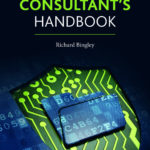The Tao of Open Source Intelligence Book Summary:
- Authors: Stewart K. Bertram
- Publishers: ITGP
- Format: Softcover
Your guide to cutting-edge information collection.
Open-source intelligence (OSINT) is a rapidly evolving approach to collecting information via the Internet, much of which isn’t indexed by normal search engines.
Written by career intelligence analyst Stewart K. Bertram, this book is a comprehensive guide to data collection, helping you gather intelligence and protect your business from cyber attacks.
The Tao of Open Source Intelligence Book Review:
If you want to learn how to read and analyze an intelligence report, then this is the perfect book for you. The Tao of Open Source Intelligence was written by Stewart K Bertram, a veteran intelligence officer, who spent more than 20 years in the intelligence community performing analysis, data collection, HUMINT operations, and counterintelligence activities. This book serves as a guide on how to organize intelligence analysis, where to find intelligence, and how to analyze and organize information.
The Tao of Open Source Intelligence starts with a brief history of the intelligence community and how political and military changes affected the intelligence communities worldwide. The author then proceeds to make a distinction between Open Source Intelligence (OSINT) and human intelligence (HUMINT). For the uninitiated, the difference is that intelligence gathered from open sources is usually more trust worthy than HUMINT information because of the ease, in which open source intelligence can be corroborated. OSINT data is used by the United States intelligence community and military.
When you read this book, you will get the sense that the author not only has vast experience in the intelligence community, but he is also a gifted writer. If you are bored to death reading dry, scientific jargon laden books, then this book is for you. The author’s writing style is very engaging, and he takes you through the process of earning an intelligence analyst certificate, writing analytical reports, and the role of the human mind and memory recall in the intelligence cycle.
The Tao of Open Source Intelligence is one of those rare books that doesn’t read like an instruction manual, but as a piece of literature. Bertram does a good job of writing the book like a guide for intelligence analysts, rather than a standard instructional book. This is probably one of the reasons why the book succeeds in keeping your attention throughout the read and keeps you reading.
The second half of the book is like the bread and butter of open source intelligence. Whenever you read a book about intelligence, the author usually truncates the writing with a disclaimer that says that what they write about is for educational purposes only. Such disclaimers are omitted in the second half of The Tao of Open Source Intelligence. The last few chapters of the book are like a dictionary on how to use open source intelligence to amass information and turn it into a finished analytical report. The author then goes on to write about some of the most important open source intelligence sources in the Internet, showing you exactly what to look for in each source.
If you are interested in earning a career in the field of open source intelligence collection, then you have to read The Tao of Open Source Intelligence. It is one of the best written books about intelligence, and it is well worth your time and money.



